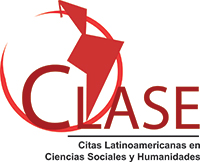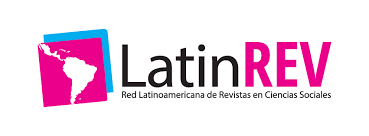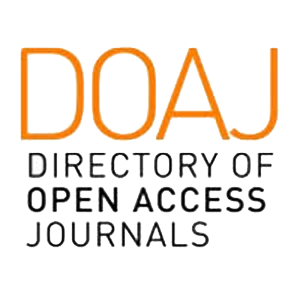UN MODELO DE REGRESIÓN LOGISTICA ORDINAL PARA LA DETERMINACIÓN DE LOS PRINCIPALES FACTORES QUE INFLUYEN EN LA PERCEPCIÓN DE LA CALIDAD DE VIDA EN DOS COMUNIDADES DE ACAPULCO, GUERRERO
Abstract
Is proposed it the ordinal logistic regression model that identifies the key factors that lead to the perception of quality of life of the residents of Ciudad Renacimiento and Llano Largo in Acapulco, Guerrero; for
it, a non-random sample of size 220 was used. This model considers a qualitative variable of interest (Quality of Life) with four ordinal categories; for which, is proposed a statistical model of ordinal logistic regression with a logit link function; the estimation of the model parameters, aj y = ( b1 , b2 ,..., bm ) unknown, was performed by the method of maximum likelihood; it adjusted the model, next step was verify the adequacy, which was held conducting three statistical tests: the parallel lines assumption, that the coefficients of the independent variables were statistically different from zero and global model tests. A lot of models were adjusted, for choosing the best model the criteria were used: significance of the coefficients of the independent variables, the pseudo R2 and the percentage of agreement between the forecast and the observed value. Three models were reported, two of which are considered plausible, one for goodness of fit and the other for its ability to forecast. In both models, economic variables have a strong influence on the perception of quality of life, however, also have space variables influence health and community life, the latter as a space that includes environmental pollution, among others, and of particular interest to this
investigation.
Downloads
References
Anand, Paul et al. “The Measurement of Capabilities”. The Department of Economics, The Open University, MK7 6AA, uk, 2007 http://www.oecd.org/site/worldforum06/38363699.pdf.
Cox, David R. y John Snell. The Analysis of Binary Data, 2da ed. Londres: Chapman and Hall, 1989.
Estes, Richard. Hacia un índice de calidad de vida, en Kliksberg. Pobreza un tema impostergable. México: clad, pnud, fce, 1993.
Félix, Mónica y Julio Piña. “Construcción y validación de un instrumento para la evaluación de la calidad de vida en personas con vih”. Terapia Psicológica, vol. 26, núm. 1, julio, 2008, pp.. 27-37.
Fesseau, Maryse y Peter van de Ven. Measuring Inequality in Income and Consumption in a National Accounts Framework, Statics Brief, no. 19, noviembre, oecd, 2014 http://www.oecd.org/std/na/Measuring- inequality-in-income-and-consumption-in-a-national-accounts- framework.pdf.
Franchet, Yves y Michael Renault. Societal Indicators of Territorial well Being, 3er oecd World Forum on “Statistics, Knowledge and Policy” Charting Progress, Building Visions, Improving Life Busan, Corea, 2009, http://www.oecd.org/site/progresskorea/44109891.pdf
García, José de Jesús. Hacia un nuevo sistema de indicadores de bienestar, en Realidad, datos y espacio. Revista internacional de estadística y geografía, vol. 2, núm.1, 2011, pp. 78-95
Harlow, Lisa. The Essence of Multivariate Thinking: Basic Themes and Methods (Multivariate Applications Series). 2da ed., Londres: Routledge, 2014.
Heredia, Jobany J., Aída Rodríguez y José Vilalta. Empleo de la regresión logística ordinal para la predicción del rendimiento académico. Revista investigación operacional. vol. 33, no. 3, 2012, pp. 252-267.
Ho, Robert. Handbook of Univariate and Multivariate Data Analysis with IBM SPSS, 2da ed., Cleveland: crc Press, 2013.
Hosmer, David, Stanley Lemeshow y Rodney Sturdivant. Applied Logistic Regression, 3a ed. Nueva Jersey: Wiley, 2013.
INEGI. Realidad, datos y espacio. Revista internacional de estadística y geografía, vol. 2, núm.1 enero-abril 2011.
Itay, Anat. “Israel’s Progress Index: a Multi-layered Model for Measuring Progress and Quality of life”, 3er oecd World Forum on “Statistics, Knowledge and Policy” Charting Progress, Building Visions, Improving Life Busan, Corea, 2009 http://www.oecd.org/site/progresskorea/ 44096120.pdf.
Kish, Leslie. Statistical Design for Research. Nueva York: John Wiley and Sons, 1987.
Leff, Enrique. ¿De quién es la naturaleza? Sobre la reapropiación social de los recursos naturales, en Gaceta Ecológica Nº 37, ine / Semarnap, México, 1995, pp. 58-64.
Long, J. Scott. Regression models for categorical and limited dependent variables, California: Sage, 1997.
McFadden, Daniel. Conditional logit analysis of qualitative choice behavior. In: Frontiers in Economics, P. Zarembka, Nueva York: Academic Press, 1974.
Mendoza, M. Elaboración y validación del cuestionario: “Desempeños profesionales de directivos y profesores en pro de una educación creativa: Evaluación y autoevaluación desde la perspectiva docente”. Revista Docencia e Investigación, no. 21. 2011.
Nagelkerke, N. J. D. A Note on the General Definition of the Coefficient of Determination. Biometrika, vol. 78, no. 3, 1991, pp. 691–692 oecd. Towards Green Growth: Monitoring Progress,
OECD Indicators, 2011 http://www.oecd.org/greengrowth/48224574.pdf.
OECD. 4th OECD World Forum on Statistics, Knowledge and Policy, Measuring Well-Being for Development and Policy Making: Highlights and Conclusions, India, octubre 2012 http://www.oecd.org/site/worldforumindia/OECD-World-Forum-2012-India-proceedings.pdf
OECD (2013). OECD Framework for Statistics on the Distribution of Household Income, Consumption and Wealth, OECD Publishing. http://dx.doi.org/10.1787/9789264194830-en.
OECD (2015). World Bank Chief Economist Sets up New Commission on Global Poverty, http://www.oecd.org/statistics/statisticsexpertstocontinueworkofstiglitz-sen-fitoussicommissiononmeasuringprogress.htm
O’Connel, A. A. Logistic regression models for ordinal response variables. California: Sage, 2006.
Ombui, G. M., Geofrey, M. y Gichuhi, W. Using Ordinal Regression Modeling to Evaluate the Satisfaction of Jomo Kenyatta, University of Agriculture and Technology, Faculty of Science Students. JAGST, vol. 13, no. 1, 2011.
Palomino, Bertha y Gustavo López. La Calidad de vida: expresión del desarrollo. Calidad de vida, salud y medio ambiente. crim. ini, iia, Cuernavaca, 2000, pp. 33-48.
Prieto, Fernando y José Antonio Nieto. Índices sintéticos de bienestar y sostenibilidad por comunidades autónomas, Documentos de Trabajo, Universidad Complutense de Madrid, 2014 http://eprints.ucm. es/25747.
Rencher, Alvin y William F. Christensen. Methods of Multivariate Analysis, 3a ed., Nueva Jersey: Wiley, 2012.
Schalock, R. Quality of Life. Application to Persons with Disabilities. vol. 2, M. Snell, y L. Vogtle Facilitating Relationships of Children with Mental Retardation in Schools, vol. 2, 1996, pp. 43-61.
Sen, Amartya. Bienestar, justicia y mercado, Ediciones Paidós, ice. de la Universidad Autónoma de Barcelona, 1993.
Sen, Amartya y Martha Nussbaum. La calidad de vida, México, df: FCE, 1993.
Yatskiv, Irina y Kolmakova, N. Using Ordinal Regression Model to Analyze Quality of Service for Passenger Terminal. The 7th International Conference. Vilnius, Lithuania, 2011.
Copyright (c) 2016 Denarius

This work is licensed under a Creative Commons Attribution-NonCommercial-ShareAlike 4.0 International License.














